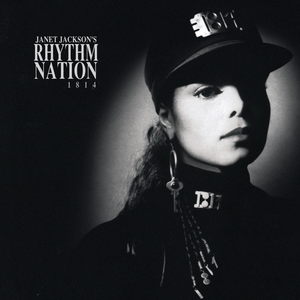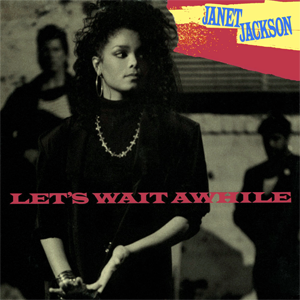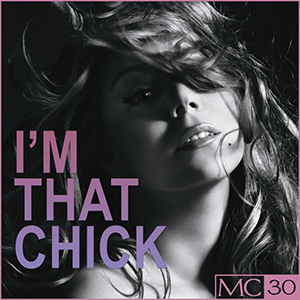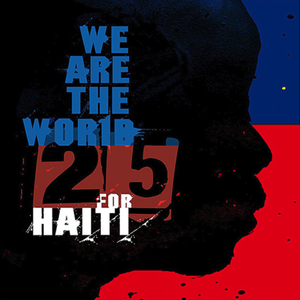Related Research Articles

Janet Damita Jo Jackson is an American singer, songwriter, actress, and dancer. She is noted for her innovative, socially conscious and sexually provocative records, as well as elaborate stage shows. Her sound and choreography became a catalyst in the growth of MTV, enabling her to rise to prominence while breaking gender and racial barriers in the process. Lyrical content which focused on social issues set her reputation as a role model for youth.
The 27th Annual Grammy Awards were held on February 26, 1985, at Shrine Auditorium, Los Angeles, and were broadcast live in the United States by CBS. They recognized accomplishments by musicians from the year 1984.

Popular music of the United States in the 1980s saw heavy metal, country music, Top40 hits, hip hop, MTV, CMJ, and new wave as mainstream. Punk rock and hardcore punk was popular on CMJ. With the demise of punk rock, a new generation of punk-influenced genres arose, including Gothic rock, post-punk, alternative rock, emo and thrash metal. Hip hop underwent its first diversification, with Miami bass, Chicago hip house, Washington, D.C. go-go, Detroit ghettotech, Los Angeles G-funk and the "golden age of old school hip hop" in New York City. House music developed in Chicago, techno music developed in Detroit which also saw the flowering of the Detroit Sound in gospel. This helped inspire the greatest crossover success of Christian Contemporary Music (CCM), as well as the Miami Sound of Cuban pop.

Janet Jackson's Rhythm Nation 1814 is the fourth studio album by American singer-songwriter Janet Jackson, released on September 19, 1989, by A&M Records. Although label executives wanted material similar to her previous album, Control (1986), Jackson insisted on creating a concept album addressing social issues. Collaborating with songwriters and record producers Jimmy Jam and Terry Lewis, she drew inspiration from various tragedies reported through news media, exploring racism, poverty, and substance abuse, in addition to themes of romance. Although its primary concept of a sociopolitical utopia was met with mixed reactions, its composition received critical acclaim. Jackson came to be considered a role model for youth because of her socially conscious lyrics.
New Zealand Hip Hop derives from the wider hip hop cultural movement originating amongst African Americans in the United States. Like the parent movement, New Zealand hip hop consists of four parts: rapping, DJing, graffiti art and breakdancing. The first element of hip hop to reach New Zealand was breakdancing, which gained notoriety after the release of the 1979 movie The Warriors. The first hip hop hit single, "Rapper's Delight" by the Sugarhill Gang, became a hit in New Zealand when it was released there in 1980, a year after it was released in the United States. By the middle of the 1980s, breakdancing and graffiti art were established in urban areas like Wellington and Christchurch. By the early 1990s hip hop became a part of mainstream New Zealand culture.

"Let's Wait Awhile" is a song by American singer Janet Jackson from her third studio album, Control (1986). It was released on January 6, 1987, by A&M Records as the album's fifth single. The song was written and produced by Jackson and Jimmy Jam and Terry Lewis, with Melanie Andrews also serving as co-writer. It is also the first song Jackson co-produced. "Let's Wait Awhile" was inspired by conversations Andrews had with her childhood boyfriend, just young teenagers at the time. Through those conversations, she was inspired to write the lyrics. The lyrics discuss sexual abstinence and postponing sexual intimacy within a relationship until the time is right.

"Rhythm Nation" is a song by American singer Janet Jackson, released as the second single from her fourth studio album, Janet Jackson's Rhythm Nation 1814 (1989). It was written and produced by Jackson, in collaboration with Jimmy Jam and Terry Lewis. Jackson developed the song's concept in response to various tragedies in the media, deciding to pursue a socially conscious theme by using a political standpoint within upbeat dance music. In the United States, it peaked at number two on the Billboard Hot 100 and topped the Hot R&B/Hip-Hop Songs and Dance Club Songs charts. It also peaked within the top 40 of several singles charts worldwide. "Rhythm Nation" received several accolades, including BMI Pop Awards for "Most Played Song", the Billboard Award for "Top Dance/Club Play Single" and a Grammy nomination for Jackson as "Producer of the Year". It has been included in two of Jackson's greatest hits collections, Design of a Decade: 1986–1996 (1995) and Number Ones (2009).

"Alright" is a song by American singer Janet Jackson from her fourth studio album, Janet Jackson's Rhythm Nation 1814 (1989). Written by Jackson and Jimmy Jam & Terry Lewis, the song was released on March 4, 1990, by A&M Records as the fourth single from Janet Jackson's Rhythm Nation 1814.

"That's the Way Love Goes" is a song by American singer Janet Jackson from her fifth album, Janet (1993). The song was released on April 20, 1993, as the lead single from the Janet album. Written and produced by Jackson and Jimmy Jam and Terry Lewis, the song's themes of romantic lust saw Jackson transitioning to sensual territory, considered a shocking contrast to her previous releases among critics and the public. The song's slow tempo fused R&B, pop, funk and soul music with flourishes of downtempo and hip hop music. It received positive reviews from contemporary music critics, who praised it as "iconic", "hypnotic", and "extravaganza" for its production and vocals.

Hip hop dance is a range of street dance styles primarily performed to hip hop music or that have evolved as part of hip hop culture. It is influenced by a wide range of styles that were created in the 1970s and made popular by dance crews in the United States. The television show Soul Train and the 1980s films Breakin', Beat Street, and Wild Style showcased these crews and dance styles in their early stages; therefore, giving hip-hop dance mainstream exposure.
Michael "Boogaloo Shrimp" Chambers is an American dancer and actor, known for his role as "Turbo" in the 1984 film Breakin' and its sequel Breakin' 2: Electric Boogaloo, in which he is credited as "Boogaloo Shrimp". Chambers rose to fame during the Hollywood phase of popping, boogaloo and robot dancing, as well as the freestyle art of b-boying. Chambers, along with his Breakin' series co-star Adolfo "Shabba Doo" Quiñones and other dancers from the films, were prominently featured in the music videos for Lionel Richie's "All Night Long" (1983) and Chaka Khan's "I Feel for You" (1984).

Michael DeLorenzo is an American actor, director, writer, producer, dancer, and musician. He is known for his work in television and film.
Don "Campbellock" Campbell was an American dancer and choreographer who was best known for having invented the "locking" dance, and for his work with The Lockers.

"Got 'til It's Gone" is a song recorded by American singer Janet Jackson, featuring American rapper Q-Tip and Canadian singer Joni Mitchell, for her sixth studio album, The Velvet Rope (1997). It was written by Jackson, Jam and Lewis, with additional writing by René Elizondo Jr., Mitchell, and Kamaal Ibn Fareed. The song was produced by Jackson, Jam and Lewis. It was released as the lead single from The Velvet Rope in 1997, by Virgin Records. The song was recorded at Flyte Tyme Studios in Edina, Minnesota. For "Got 'til It's Gone", Jackson opted for a less polished and more authentic alternative hip hop and trip hop-influenced sound.
Beat Freaks is an all-female breaking dance crew from Los Angeles, California. Each of its ten members have achieved individual success dancing before taking part of the group, which was created in 2003. The Beat Freaks were featured on MTV's America's Best Dance Crew and finished the show as runners-up.

"Feedback" is a song by American recording artist Janet Jackson, released as the lead single from her tenth studio album, Discipline. It was written and produced by Rodney "Darkchild" Jerkins and D'Mile, with additional writing from Tasleema Yasin and LaShawn Daniels. "Feedback" fuses electropop and dance, while also incorporating elements of Eurodance and hip hop. Its lyrical composition is based on Jackson's sexual bravado; questioning the listener while responding with a chant of "sexy, sexy". Its chorus compares her body to instruments such as a guitar and amplifier, using metaphors to demonstrate sexual climax.

"I'm That Chick" is a song by American singer and songwriter Mariah Carey from her eleventh studio album, E=MC² (2008). A disco track with influences of R&B, it was written by Carey, Johntá Austin and production duo Stargate. It contains elements of "Off the Wall" by Michael Jackson. Rod Temperton, the song's composer, received a songwriting credit for "I'm That Chick" as result.

"We Are the World 25 for Haiti" is a charity single recorded by the supergroup Artists for Haiti in 2010. It is a remake of the 1985 hit song "We Are the World", which was written by American musicians Michael Jackson and Lionel Richie, and was recorded by USA for Africa to benefit famine relief in Africa. Initially, in late 2009, it had been suggested to Richie and Quincy Jones—producer of the original "We Are the World"—that a re-cut version of the song be re-released under the title "Live 25". Following the magnitude 7.0 Mw earthquake in Haiti, which devastated the area and killed thousands of people, it was agreed that the song would be re-recorded by new artists, in the hope that it would reach a new generation and help benefit the people of Haiti.

The history of hip-hop dances encompasses the people and events since the late 1960s that have contributed to the development of early hip-hop dance styles, such as uprock, breaking, locking, roboting, boogaloo, and popping. African Americans created uprock and breaking in New York City. African Americans in California created locking, roboting, boogaloo, and popping—collectively referred to as the funk styles. All of these dance styles are different stylistically. They share common ground in their street origins and in their improvisational nature of hip hop.

Timothy Earl Solomon, known as Popin' Pete, is an American dancer, choreographer who popularized the "popping" dance style and member of the Electric Boogaloos. Pete’s career has spanned over forty years since the emergence of popping dance.
References
- Culture Moves: Suga Pop. 2005. Center for Pacific Islands Studies, University of Hawai'i at Mānoa. 9 April 2008
- ↑ "Suga Pop, the dancer who taught Michael Jackson, gives Calgary poppers and lockers a lesson". Cbc.ca. Retrieved 24 February 2022.
- 1 2 Henderson, April K. "Dancing Between Islands: Hip Hop and the Samoan Diaspora." in The Vinyl Ain't Final: Hip Hop and the Globalization of Black Popular Culture, ed. by Dipannita Basu and Sidney J. Lemelle, pp. 180-199. London; Ann Arbor, Michigan: Pluto Press, p. 200, ISBN 978-0745319407
- ↑ [ dead link ]
- ↑ Henderson, April K. "Suga Pop vs. David Dallas." in Back2Basics Vol 3 Issue 17, Jan-Mar 2009: pp. 88-91
- ↑ ""My Suga" Music Video - Pop - Caramel 76" . Retrieved 24 February 2022– via YouTube.